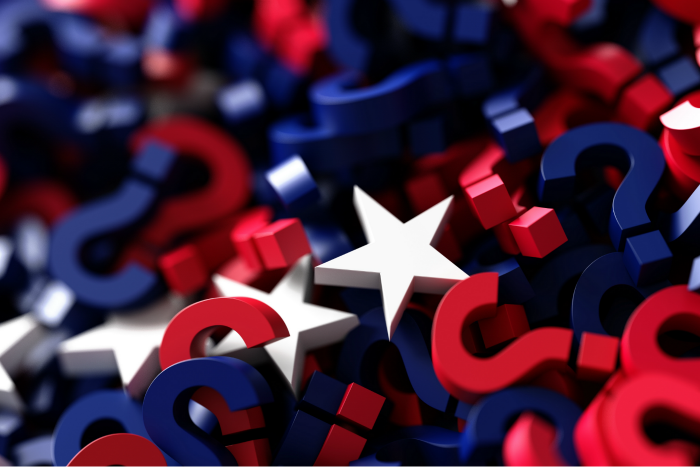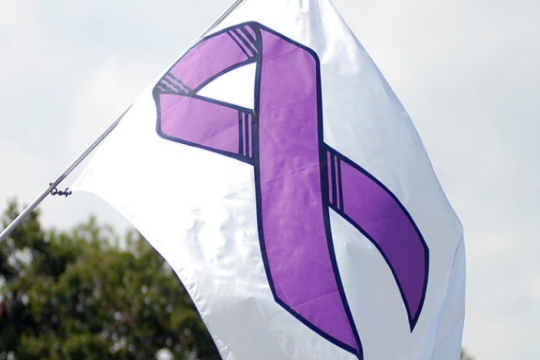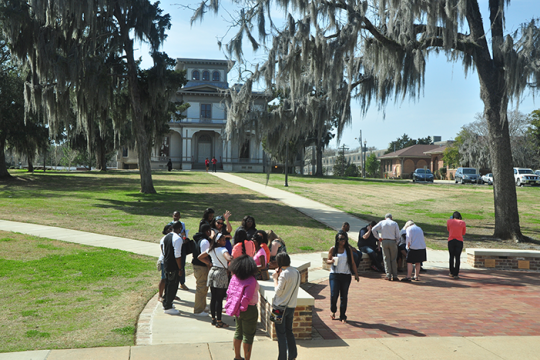
In the U.S., the nation woke up the morning after Election Day (if it went to bed at all) to the clear news that ballots in the 2020 election are still being counted. This was always a likely outcome: In a year with unprecedented turnout and millions of votes cast by mail, counting the ballots would inevitably take time.
So while we don’t yet know which candidate won the White House or which party will control the Senate, we do know this: Democracy is strongest when every voice is heard. State officials must take – and be allowed – the time they need to count every vote.
Here’s something we do know about this election: Vulnerable and oppressed communities remain vulnerable and oppressed. This election was not a clear repudiation of white supremacy. The Jewish community, many Communities of Color, members of the LGBTQ community, people with disabilities, poor people, and so many other marginalized groups continue to be at risk from white supremacists and those who enable them.
Our role is to work together, to keep building relationships to strengthen each other, and reach out to those who could be susceptible to messages of hate.
Each day will bring greater clarity about the election results and their meaning for the future of the country. As races continue to be called, we’ll know more about the election’s impact on health care, immigration reform, criminal justice reform, LGBTQ+ rights (including marriage equality), climate justice, reproductive rights, and even voting rights. But whichever candidates ultimately win, no outcome is pre-ordained; it will require all of us to continue to lift our voices on behalf of the issues and people we care about.
That’s why we are so proud of the tremendous participation across the Reform Jewish community in Every Voice, Every Vote: The Reform Movement’s 2020 Civic Engagement Campaign, our nonpartisan civic engagement campaign. We mobilized voters, fought voter suppression, and engaged student voters. Through phone- and text-banking, in postcards and via ballot initiative advocacy, and as election protection volunteers, we reached more than half a million voters in this election cycle.
Now, it’s time to leverage those powerful relationships on behalf of the values that are central to us and make the future we envision real.
Here are some ways you can act:
- Welcome Shabbat with us this Friday: You're invited to join the Reform Jewish Movement for a Facebook Live event on Friday, November 6 at 2:30pm ET for a post-election analysis and pre-Shabbat gathering.
- Write to Congress: Use the Religious Acton Center of Reform Judaism's easy action alert tool to urge your Governor and Secretary of State to ensure every vote is counted before certifying the election results.
- Share the message: Share our video on Facebook, Twitter, and/or Instagram to encourage others to be patient and have faith while every vote is counted.
- Work for unity: Organize your congregation or community to participate in With Malice Toward None, an Initiative for faith communities that aims to create a space for people to deal with their emotions (positive and negative), to build our capacities for working together to address our common challenges, and to commit ourselves to a renewed citizenship.
- Stay updated: Follow the Religious Action Center of Reform Judaism on Facebook, Twitter, and Instagram for continued and up-to-the-minute updates, and sign up to receive emails to continue your engagement beyond election season.
- Remain engaged: Visit www.rac.org/cec for continued updates and learning opportunities in the aftermath of the 2020 election season.
Visit hhttp://www.rac.org for continued information and updates on Jewish social justice issues.
Related Posts

Supporting Survivors of Domestic Violence in the Jewish Community

Two Out of Two


